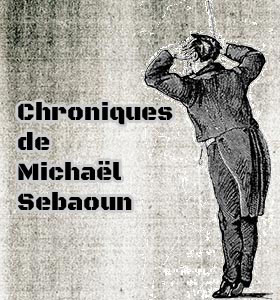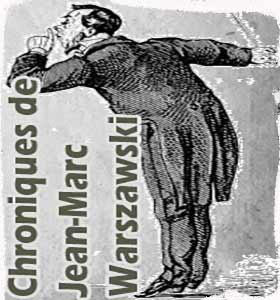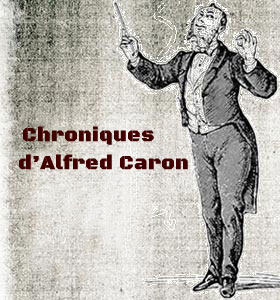Global Mediterranean. Postcolonial Music Histories (16th-20th Centuries)
9-12 July, 2025, València, Spain.
An almost unchangeable landscape that determines the fate of its inhabitants (as Braudel saw it) or a basin that inspires the ideas and endeavours of the human beings who cross it (as Abulafia suggests), the Mediterranean is a sea of diversity.
On its shores flourish cultures rooted in a multi-millennial reality of circulation and exchange. Musical practice and thought is a field in which this reality is particularly evident and relevant: ideas, beliefs and theories about music, instruments and practices, repertoires and forms of interpretation meet and influence each other along borders, accompany travellers, overlap and stabilise after various migrations or diasporas. A mutual interlocution that is generated beyond, and often below, the geopolitical dimension of states—and that is immanent to all aspects of human cultures (Jullien).
This dialogue extends far beyond the geographical boundaries of the Mediterranean basin, involving civilisations rooted in other parts of the world. The exchanges established along the routes of trade and war are essential to the musical practices of the Mediterranean: so are therelations with the cultures of the Near and Far East (ed. Strohm, The Road to Music) and with Africa and America (ed. Marín-López, Músicas coloniales a debate). The cultural losses inflicted by colonialism are irreparable, and many wounds are still open and influential in the present.
However, the realities of encounter and fertilisation produced by early globalisation are necessarily part of the history of music in the Mediterranean.
Recent works show the productivity of an innovative research model that makes disciplinary frameworks flexible and plays on the scale of reconstruction, from the macro to the micro: processes, events, repertoires and seemingly marginal figures are integrated into rigorous historical narratives that reveal unimagined or simply overlooked connections (ed. van Orden, Seachanges). In an almost paradoxical way, the historical reconstruction of musical traditions in the Mediterranean may offer itself as a possible application of concepts currently emerging in the debate on the global history of music.
A resounding Mediterranean, extended along the secular routes of globalisation, offers itself as a methodological laboratory. And also as a possible model for other seas or other spaces of encounter between cultures: every body of water, from small seas to oceans, is in the midst of lands that divide and unite at the same time.
Call for Proposals
Proposals are invited for free papers, round tables, and study sessions. The Program Committee seeks free papers that reflect current research as broadly as possible. Free papers can be on any musicological topic. Study sessions may also be proposed on any topic, they are “informal” in nature, providing an opportunity for scholars to exchange ideas on issues, methodologies, and research frameworks relating to specialized subjects while opening the discussion to all Symposium participants. Proposals for inter-disciplinary dialogue, especially between historical musicology and ethnomusicology, are especially encouraged. Round tables are to focus exclusively on topics relating to the themes of the Intercongressional Symposium.
Given the geographical location of Valencia, studies of music in the Mediterranean region, both historical and anthropological, will be particularly welcome.
Proposals focusing on the mutual relations and exchanges between different cultural areas, both within and from the Mediterranean—for example, along the North/South axes with Sub-Saharan Africa, or East/West with the Middle East and the Americas—will be particularly welcome. And, of course, the musical dynamics of other seas surrounded by land, the many other“Mediterraneans” of the world.
Examples of possible topics:
Discourses on music (theoretical, narrative, critical in the broadest
sense).
Musical practices, from self-production to institutional concerts and
performances.
Musical instruments and technologies from past to present.
New technologies and their impact on musical practices.
Repertoires of written or oral transmission.
Postcolonial studies, orientalism and the global history of music.
Music of different traditions in travel literature, accounts and documents.
Forms of communication of sonic events.
Private, public and state patronage.
The transmission of knowledge in complex contexts: didactics and
artistic research.
The circulation of music and performance across the sea.
Soundscapes past and present.
The presence of musicology and the role of the musicologist in the
Mediterranean.
Submission Guidelines
Before submitting your proposal, please read the following instructions
carefully.
Types of Intervention
Free papers: 20 minutes + 10 minutes for questions and comments.
Round tables and Study sessions: Organizers will have 90 minutes to distribute among presentations and debate as they wish.
Posters: Poster display areas will be made available with 10-minute sessions for their presentation.
Doctoral thesis presentation: Participants will have 10 minutes to present the main arguments of their PhD thesis. Only dissertations defended between 1 January 2023 and 31 December 2024 are eligible.
Submitting Your Proposal
1. Only proposals submitted online will be accepted. Proposals sent by e-mail or any other means will not be considered.
2. Proposals must be submitted in English or with an English translation. Presentations may be given in any language, but we encourage participants to use English or English language slides and posters to ensure the widest potential audience for their presentations.
3. Attendance in person is encouraged. Remote participation is possible for free papers and doctoral thesis presentations.
4. Only one proposal may be submitted for each of the five presentation categories: free papers, round tables, study sessions, posters, and doctoral thesis presentations.
5. Proposals must not exceed 300 words for free papers, posters and doctoral thesis, and 500 words for round tables and study sessions; they must be submitted via the respective online forms.
6. For round tables and study sessions, a single proposal should be submitted by the session coordinator.
7. Our online submission system will be available between 14 November 2024 and 24 January 2025.
8. The Scientific Committee will evaluate the proposals and announce the results by 17 April 2025.
9. All presenters are required to register for admission to the symposium.
Confirmed Keynote Speakers : *Anna Maria Busse Berger (UC Davis, Department of Music) ; Luisa Cymbron (Universidade Nova de Lisboa)
Scientific Committee ; Andrea Bombi (Universitat de València - Spain) ; Jen-yen Chen (National Taiwan University – Taiwan) ; John Griffiths (University of Melbourne - Australia) ; David R. M. Irving (ICREA & Institució Milà i Fontanals de Recerca en Humanitats, CSIC - Spain) ; Javier Marín (Universidad de Jaén – Spain) ; Kate van Orden (Harvard University – USA) ; Théodora Psychoyou (Université Paris-Sorbonne – France) ; Imani Sanga (University of Dar es Salaam – Tanzania) ; Salwa El-Shawan Castelo Branco (Universidade Nova de Lisboa – Portugal) ; Anna Tedesco (Università di Palermo – Italy) ; Maria Alice Volpe (Universidade Federal do Rio de Janeiro – Brazil)




 À propos - contact |
S'abonner au bulletin
| Biographies de musiciens | Encyclopédie musicale | Articles et études | La petite bibliothèque | Analyses musicales | Nouveaux livres | Nouveaux disques | Agenda | Petites annonces | Téléchargements | Presse internationale | Colloques & conférences | Collaborations éditoriales | Soutenir musicologie.org.
À propos - contact |
S'abonner au bulletin
| Biographies de musiciens | Encyclopédie musicale | Articles et études | La petite bibliothèque | Analyses musicales | Nouveaux livres | Nouveaux disques | Agenda | Petites annonces | Téléchargements | Presse internationale | Colloques & conférences | Collaborations éditoriales | Soutenir musicologie.org.
Musicologie.org, 56 rue de la Fédération, 93100 Montreuil. ☎ 06 06 61 73 41.
ISSN 2269-9910.

Mercredi 19 Mars, 2025

 20 mars 2025
20 mars 2025